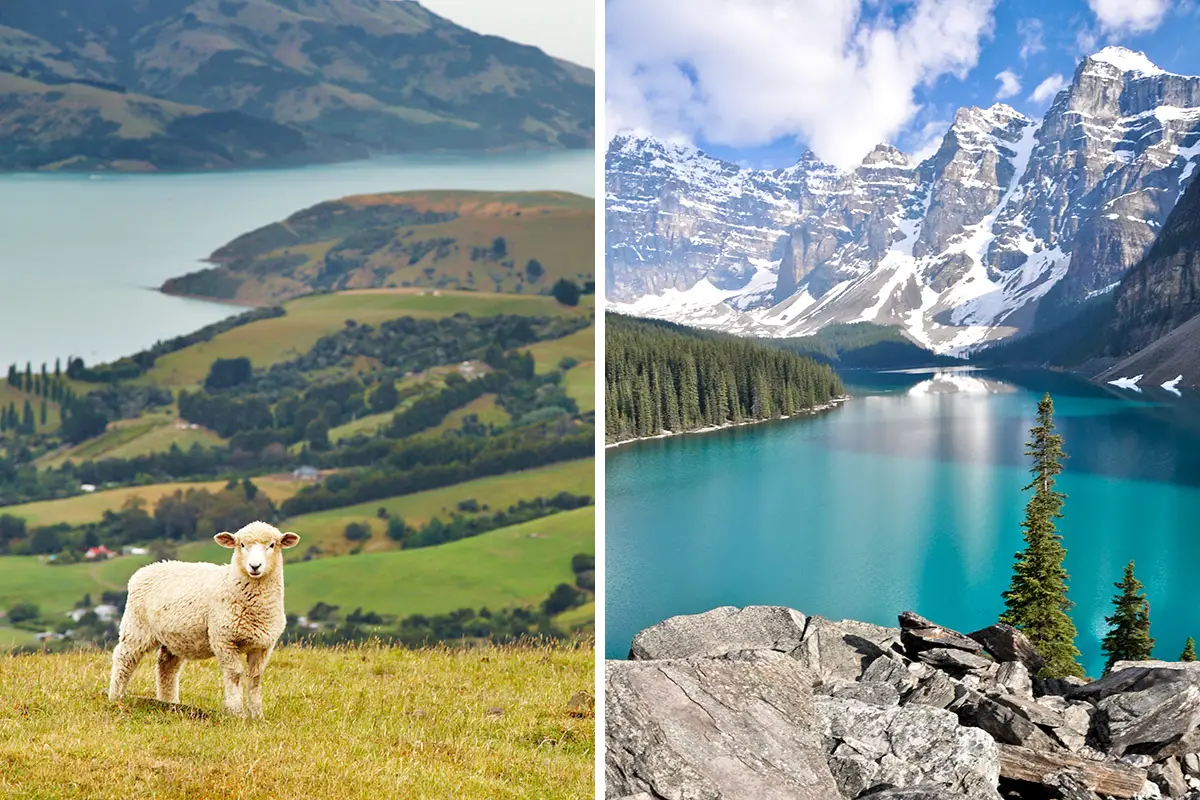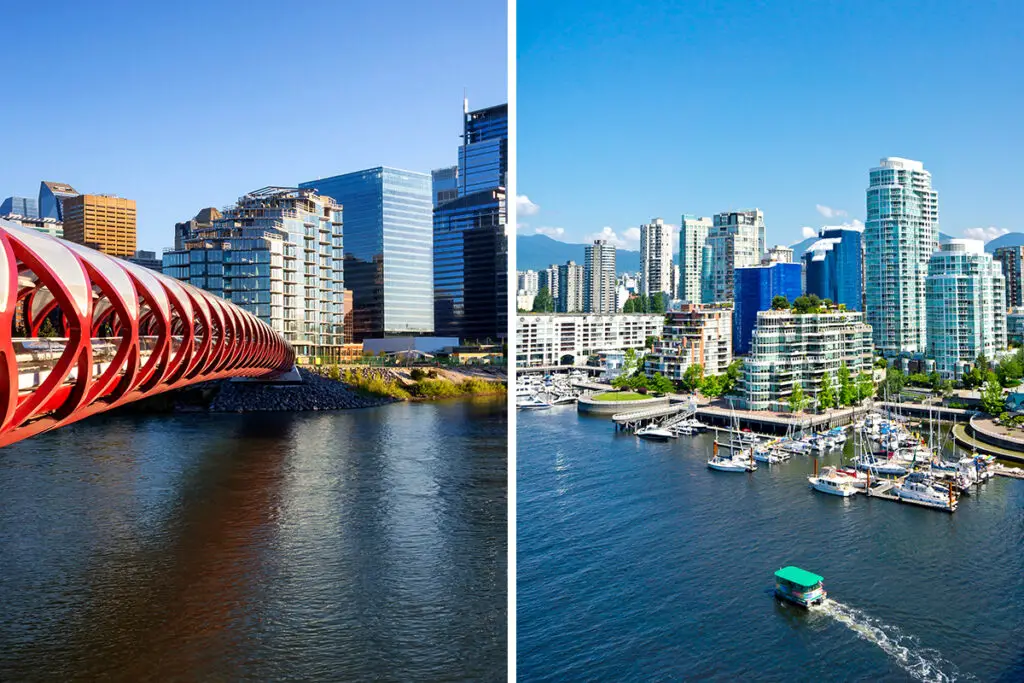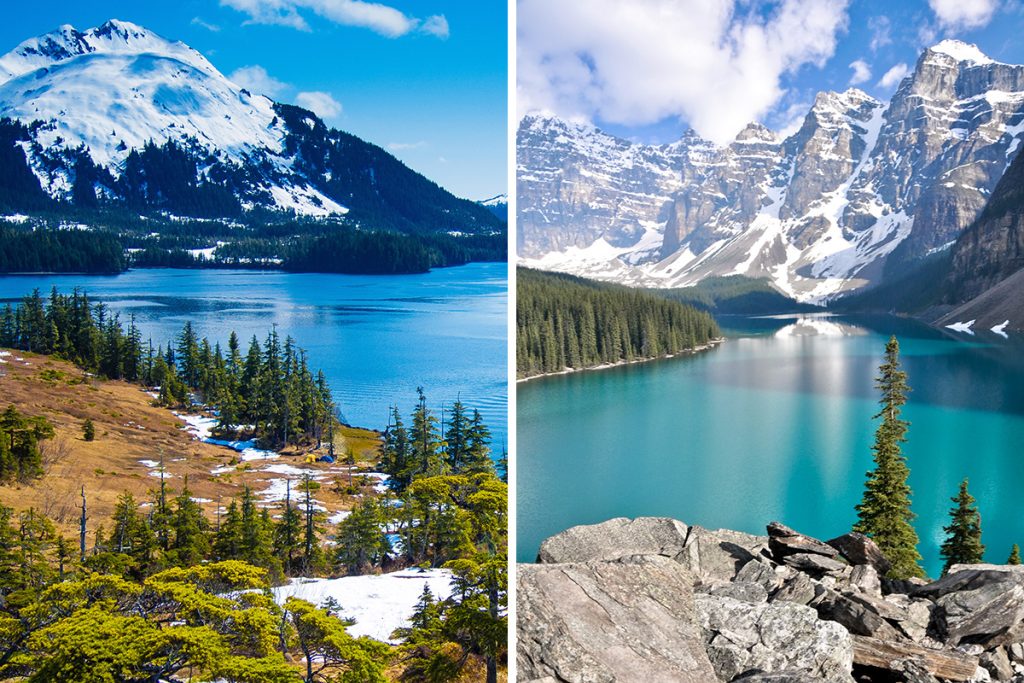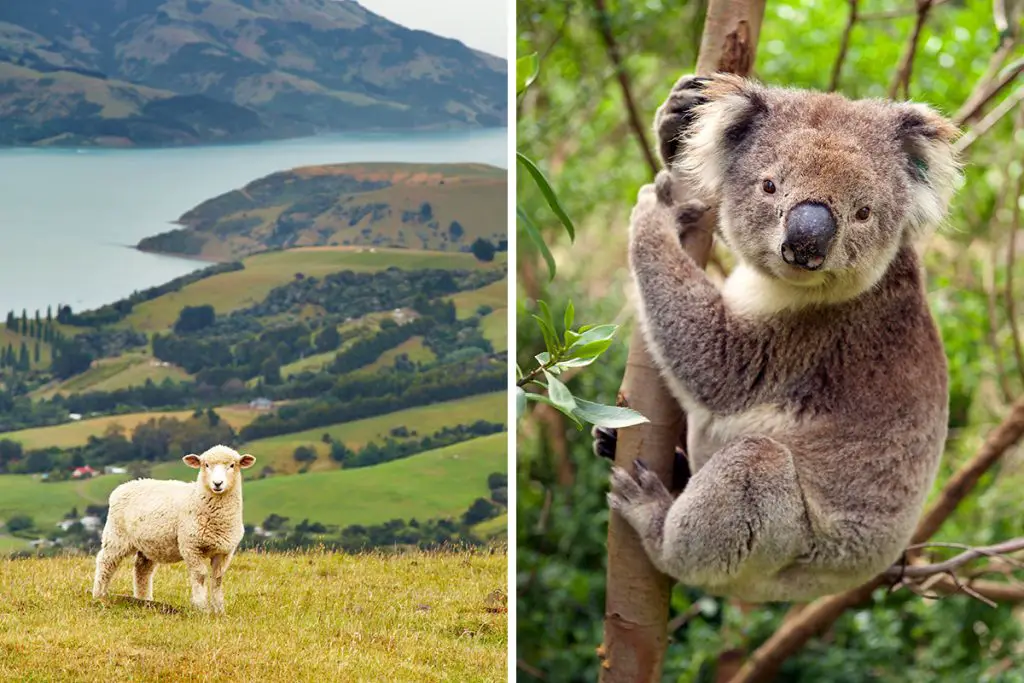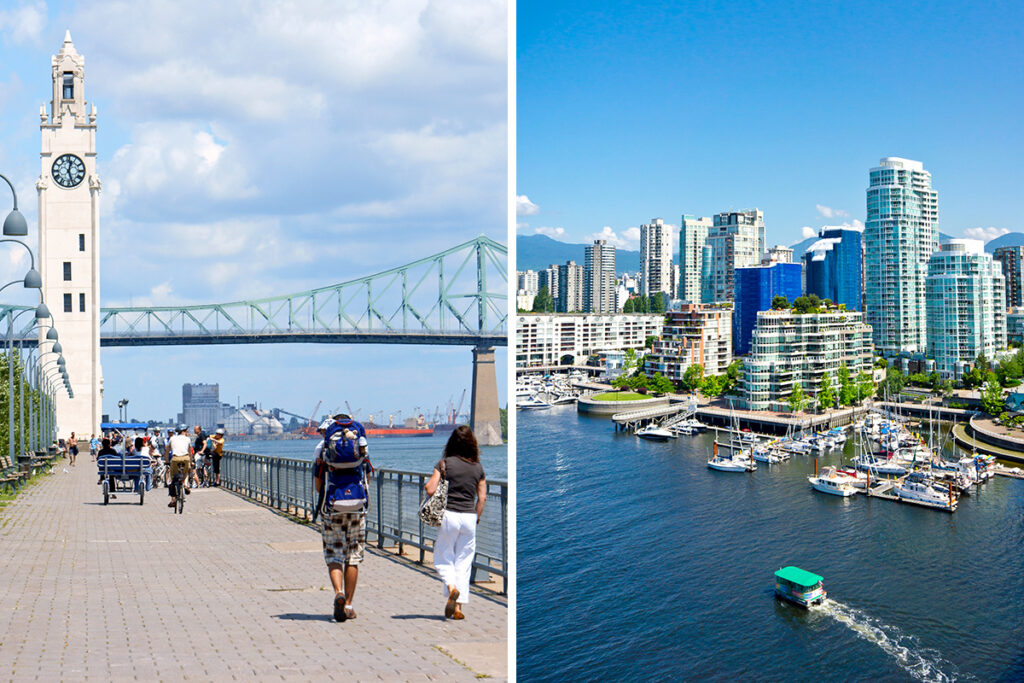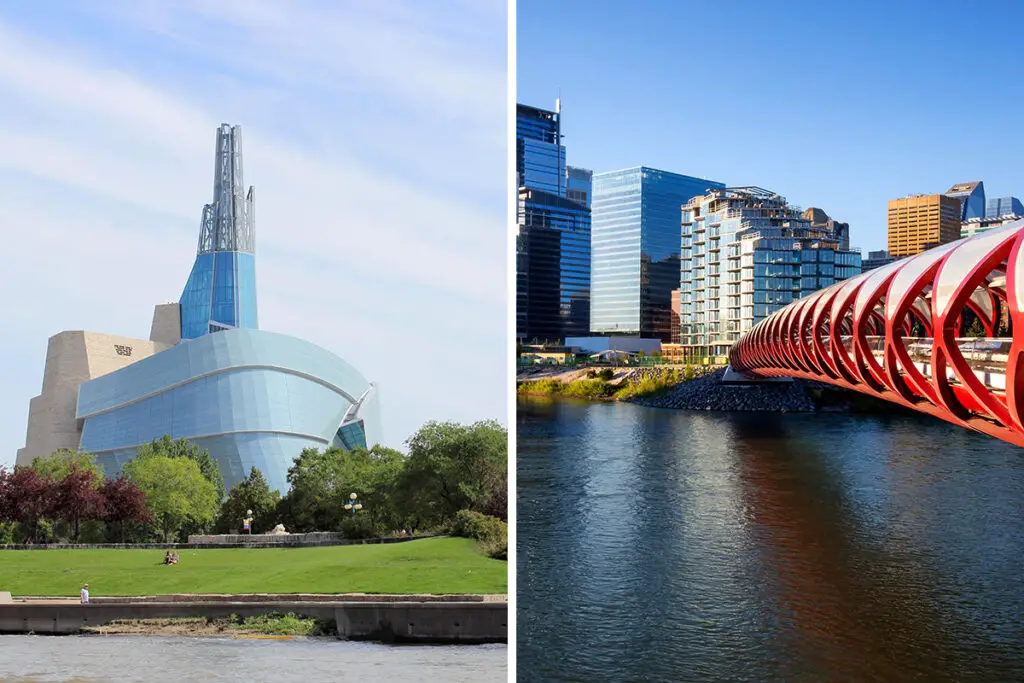Deciding on a travel destination like New Zealand or Canada can be a head-scratcher. Both countries have so much to offer, from deep-rooted traditions to present-day festivities. Dive deep into this comparison and find out which one pulls at your heartstrings the most.
History & Culture
When it comes to understanding the essence of a place, its history and culture play a pivotal role. Both New Zealand and Canada have stories that have shaped their modern identities. As you journey through their tales, you’ll discover the uniqueness of each.
New Zealand, known to its indigenous Māori people as Aotearoa, has a rich tapestry of history. The Māori culture, with its Haka dances and intricate carvings, has significantly influenced New Zealand’s identity. Over time, interactions with European settlers brought changes, but the Māori essence remains strong, blending seamlessly with contemporary Kiwi life.
Canada, on the other hand, is a mosaic of cultures. Originally inhabited by First Nations, Inuit, and Métis peoples, Canada’s cultural landscape transformed with European exploration and settlement. French and English influences are evident, especially in language and governance.
Today, Canada prides itself on being a multicultural nation, welcoming people from all corners of the world.
Comparing the two, New Zealand offers a more centralized cultural experience rooted in Māori traditions. In contrast, Canada provides a broader multicultural tapestry, resulting from centuries of immigration and amalgamation.
In summary, while both countries celebrate their histories and cultures with pride, the experience they offer is distinct. New Zealand immerses you in a blend of Māori and contemporary Kiwi life, while Canada presents a vast mosaic of global influences. The choice is yours: which rich tapestry of history and culture calls out to you?
Attractions & Activities
When planning a getaway, the attractions and activities available often become the deciding factors. Both New Zealand and Canada boast a plethora of options that can leave one awestruck. From serene landscapes to adrenaline-pumping adventures, each destination offers a unique experience.
New Zealand, a land of enchanting sceneries, offers attractions like the famous Milford Sound in Fiordland, a breathtaking fjord known for its towering cliffs and cascading waterfalls. For those who seek thrills, bungee jumping off the Kawarau Bridge in Queenstown or exploring the Waitomo Glowworm Caves can be exhilarating experiences.
The country’s rich Maori heritage can be explored in Rotorua, with its geothermal wonders and cultural performances.
Canada, vast and diverse, beckons with its majestic Rocky Mountains in Alberta, perfect for hiking and witnessing wildlife. The iconic Niagara Falls in Ontario is a sight to behold, with millions of liters of water crashing down every minute. History buffs might find solace in the cobblestone streets of Quebec City, reminiscing about bygone eras.
For a touch of nature, the Banff National Park offers serene lakes and towering peaks.
To wrap up, if you’re leaning towards a destination with a blend of culture and nature, New Zealand might be your pick. However, if vast terrains and iconic natural landmarks are on your list, Canada awaits. Whichever you choose, unforgettable memories are guaranteed.
Beaches
When it comes to beaches, the allure of soft sands, gentle waves, and the vast expanse of the ocean is hard to resist. Both New Zealand and Canada offer coastal delights but with unique touches that set them apart.
New Zealand, surrounded by the Pacific Ocean, boasts beaches like Piha, a black-sand beauty located about 40 km (approximately 24.8 miles) from Auckland. Its strong waves make it a surfer’s paradise. On the other hand, the Coromandel Peninsula offers Hot Water Beach, where you can dig your own spa pool during low tide, thanks to the underground hot springs.
Canada, with its extensive coastline, has gems like Long Beach in British Columbia. Spanning 16 km (around 9.9 miles) on Vancouver Island’s west coast, it offers a blend of forested trails and ocean views. On the Atlantic side, the Cabot Trail in Nova Scotia provides breathtaking coastal vistas and cliffside views.
In a nutshell, New Zealand’s beaches are known for their unique features and Pacific charm, while Canada’s coastal stretches showcase the country’s vastness and diversity.
Concluding, if a Pacific vibe with unique beach experiences entices you, New Zealand is the place to be. But if you’re looking for expansive coastlines with a mix of forests and ocean, Canada’s shores beckon. The serene sound of waves awaits you in both destinations.
Eating, Drinking & Nightlife
A significant part of any travel experience revolves around savoring local cuisines, enjoying a drink or two, and soaking in the nightlife. Both New Zealand and Canada offer a feast for the senses, each with its own distinctive flavor and flair.
New Zealand’s culinary scene is a delightful blend of traditional Maori dishes and modern Pacific Rim cuisine. Think fresh seafood, succulent lamb, and the iconic pavlova dessert. The country’s vineyards, especially in Marlborough, produce world-renowned wines like Sauvignon Blanc and Pinot Noir.
For those looking to unwind, a visit to a local winery can be a treat. As the sun sets, cities like Auckland and Wellington come alive with bustling bars, live music venues, and dance clubs, offering a taste of Kiwi nightlife.
Canada, with its vastness, presents a culinary palette as diverse as its landscapes. From the poutine of Quebec to the fresh salmon of British Columbia, there’s a dish for every palate. When it comes to drinks, Canadian whisky and craft beers from local breweries are favorites.
Cities like Toronto and Vancouver are dotted with pubs and bars that reflect the country’s multicultural vibe. Night owls can revel in the vibrant nightlife, with numerous clubs, live performances, and festivals lighting up the Canadian nights.
In conclusion, while New Zealand offers a harmonious blend of traditional and contemporary flavors with a Pacific touch, Canada’s gastronomic offerings mirror its cultural diversity. Whether you’re a foodie, a drink enthusiast, or a nightlife lover, both destinations promise memorable experiences.
Shopping
The thrill of discovering unique souvenirs, local crafts, and trendy boutiques is a joy for many travelers. New Zealand and Canada, with their distinct cultures and styles, offer shopping experiences that are both diverse and intriguing.
In New Zealand, markets like Auckland’s Otara Market and Wellington’s Harbourside Market showcase Maori crafts, local art, and fresh produce. For those keen on fashion, boutiques in cities like Christchurch and Dunedin offer trendy Kiwi designs. Additionally, New Zealand is famous for its high-quality wool products and greenstone (pounamu) jewelry.
Canada, with its vast expanse, offers a variety of shopping experiences. From the artsy boutiques of Montreal’s Plateau-Mont-Royal to the indigenous crafts of Vancouver’s Granville Island, there’s something for everyone.
Toronto’s Distillery District is a haven for art lovers, with its galleries and artisan shops. And if you’re in the mood for luxury shopping, Vancouver’s Robson Street or Toronto’s Yorkville neighborhood won’t disappoint.
To sum it up, New Zealand’s shopping scene reflects its rich Maori heritage and contemporary designs, while Canada offers a mix of indigenous crafts, trendy boutiques, and luxury brands. Whichever destination you choose, happy shopping awaits!
Accommodation
Finding the right place to stay can elevate a trip from good to unforgettable. Both New Zealand and Canada offer diverse accommodations, catering to varied preferences and ensuring a comfortable stay.
In New Zealand, you can choose from traditional lodges nestled amidst scenic landscapes to modern city hotels. The country also offers unique stays like farmhouses, where you can immerse yourself in Kiwi rural life. Additionally, for those wanting a close-to-nature experience, there are numerous well-maintained campgrounds and holiday parks.
Canada, given its vastness, has a wide array of accommodations. From the historic châteaus of Quebec to the cozy cabins in the Rockies, there’s something for every traveler. Urban centers like Toronto and Vancouver have a range of contemporary hotels, while the countryside offers quaint bed and breakfasts and inns.
In summary, while New Zealand provides a mix of traditional and modern stays, Canada’s accommodations reflect its rich history and diverse landscapes. Both destinations ensure that travelers find their perfect home away from home.
Family-Friendliness & Children’s Activities
Traveling with family, especially kids, requires destinations that offer engaging activities for all ages. Both New Zealand and Canada shine in this aspect, making family vacations memorable.
In New Zealand, families can enjoy activities like visiting the Hobbiton Movie Set, exploring the geothermal wonders of Rotorua, or taking a fun-filled ride in the luge in Queenstown. The country’s wildlife parks and interactive museums also offer educational and entertaining experiences for children.
Canada, with its vast landscapes, has a plethora of family-friendly activities. From the dinosaur fossils in Drumheller’s Royal Tyrrell Museum to the interactive Science World in Vancouver, kids are in for a treat. National parks offer family-friendly hikes, and places like the Toronto Zoo provide fun and learning combined.
To wrap it up, New Zealand and Canada are treasure troves of activities that cater to families. While New Zealand offers a mix of nature and movie magic, Canada’s vastness brings varied experiences from coast to coast.
Getting There & Getting Around
Journeying to a new destination and exploring it efficiently is crucial for any traveler. New Zealand and Canada, though distinct, offer smooth travel experiences.
To reach New Zealand, major international airports like Auckland and Christchurch serve flights from various global destinations. Once in the country, domestic flights, buses, and the scenic KiwiRail make traversing the islands easy.
Canada, being the second-largest country in the world, has major international airports in cities like Toronto, Vancouver, and Montreal. These hubs connect Canada to the world. For internal travel, Canada boasts an extensive railway system, the VIA Rail, and a network of domestic flights. For those keen on road trips, the Trans-Canada Highway offers an epic journey.
In essence, while New Zealand provides easy connectivity between its North and South Islands, Canada’s vastness is well-covered by its efficient transport systems. Whether you’re hopping between cities or exploring the countryside, both destinations ensure seamless travel experiences.
Weather
Weather can play a pivotal role in shaping our travel experiences. Both New Zealand and Canada offer distinct climatic patterns, each with its own set of charms and challenges.
New Zealand, located in the Southern Hemisphere, experiences its seasons opposite to those in the Northern Hemisphere.
Summers (December to February) are warm, with temperatures ranging between 70°F to 90°F (21°C to 32°C). Winters (June to August) are cooler, especially in the South Island, with temperatures from 35°F to 60°F (2°C to 15°C). The country receives ample rainfall, making its landscapes lush and green.
Canada, vast and diverse, has a range of climatic zones. While summers (June to August) in cities like Toronto and Vancouver can see temperatures from 75°F to 85°F (24°C to 29°C), winters (December to February) can be harsh, especially in regions like Alberta and Quebec, with temperatures plummeting to -40°F (-40°C) or even lower.
Snowfall is abundant in many parts, making Canada a winter wonderland.
In a nutshell, while New Zealand offers milder temperatures and reversed seasons, Canada’s vastness brings with it a mix of warm summers and icy winters. Your preference for sunny beaches or snowy landscapes might influence your choice.
Safety
Safety is paramount when choosing a travel destination. New Zealand and Canada, both known for their friendly locals, offer secure environments for travelers.
New Zealand is generally regarded as a safe country, with low crime rates. However, like any other place, it’s always wise to be cautious, especially in bigger cities during nighttime. Natural occurrences, such as earthquakes, are also something travelers should be aware of, given New Zealand’s location in the Pacific “Ring of Fire.”
Canada, vast and diverse, is also considered safe for tourists. Petty crimes like pickpocketing might occur in crowded areas, so staying vigilant is essential. One unique aspect travelers should consider is the country’s diverse wildlife. Encounters with animals like bears or moose in national parks require awareness and preparedness.
To summarize, both New Zealand and Canada provide a secure environment for travelers, with unique natural aspects to be mindful of, ensuring a memorable and safe journey.
Cost
Budgeting for a trip is crucial, and understanding the cost dynamics of a destination can be enlightening. New Zealand and Canada, while offering rich experiences, come with their own set of expenses.
In New Zealand, a mid-range meal might cost around NZ$60 (approximately 35 USD), while a night in a standard hotel could be around 130 USD. Transportation, especially inter-island ferries or domestic flights, can add to the expenses.
Canada, with its extensive landscape, has varied costs. A meal in cities like Toronto or Vancouver might be around CAD45 (approximately 35 USD), and a standard hotel room can average 190 USD. Using public transportation or renting a car can be cost-effective ways to explore the vast country.
In conclusion, while New Zealand offers a mix of cultural and natural experiences at a certain price point, Canada’s vastness brings with it varied costs depending on the region. Both destinations promise value for money, ensuring travelers get the best of experiences within their budget.
Which Is Better – New Zealand or Canada?
Deciding between two captivating destinations like New Zealand and Canada is no easy task. Each nation, with its unique offerings and experiences, has the power to leave lasting impressions. Let’s delve deep into a summarized comparison to help make the choice a tad bit easier.
When it comes to History & Culture, New Zealand presents a harmonious blend of Maori traditions and contemporary Kiwi life. Canada, on the other hand, stands as a mosaic of global influences, from its indigenous roots to its French and English colonial past.
Those keen on a centralized cultural experience might lean towards New Zealand, while those looking for a multicultural tapestry may find Canada more appealing.
Regarding Attractions & Activities, New Zealand’s landscapes, from the Milford Sound to the Waitomo Caves, offer natural beauty and adventure. Canada tempts with its vast terrains, from the Rocky Mountains to Niagara Falls.
Both are treasure troves, but the nature of experiences varies, with New Zealand focusing on nature and culture and Canada showcasing its vast landscapes.
For beach lovers, the Beaches of New Zealand, like Piha and Hot Water Beach, offer Pacific charm. Canada’s coastlines, such as Long Beach and Cabot Trail, highlight the country’s diversity.
Diving into Eating, Drinking & Nightlife, New Zealand offers a Pacific touch in its cuisine, complemented by renowned wines. Canada mirrors its cultural diversity in its gastronomic offerings, with dishes from poutine to salmon and beverages from whisky to craft beer. Nightlife in both countries promises vibrant experiences, from Auckland’s bars to Toronto’s clubs.
Shopping enthusiasts will find New Zealand reflecting its Maori heritage, while Canada offers a mix of indigenous crafts and luxury brands. In terms of Accommodation, New Zealand provides a blend of traditional lodges and modern hotels, while Canada’s range spans from châteaus to cabins.
Considering Family-Friendliness & Children’s Activities, both nations shine, with New Zealand offering Hobbiton and geothermal wonders and Canada presenting museums and national parks. For Getting There & Getting Around, New Zealand’s connectivity between its islands is commendable, while Canada’s vastness is well-managed by efficient transport systems.
Weather-wise, New Zealand offers milder temperatures, while Canada boasts warm summers and icy winters. Lastly, in terms of Safety and Cost, both destinations ensure a secure environment with unique considerations and offer experiences that provide value for money.
In conclusion, if you’re leaning towards diverse landscapes, multicultural vibes, and expansive terrains, Canada might be your pick. However, if a blend of Maori culture, Pacific charm, and nature-driven adventures appeal to you, New Zealand beckons. Whichever you choose, rest assured that unforgettable memories are in the making.

